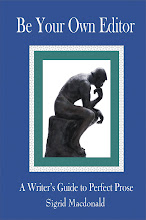By Lisa Ramsay
Being a writer is something thousands of people aspire to be. However, there will only ever be a handful of authors whose work is remembered in the decades and centuries to come. The rest of us can accept that while we’ll never be Jane Austen or Dan Brown, it is possible to make a living as a writer. Most aspiring writers who want to put pen to paper, or fingertip to MacBook, do it because they love their craft. It’s this passion for writing which means that many writers work for free, or for a very low wage; but it is possible to make a living from doing what you love. Although the romanticism of writing a novel in longhand might belong to the previous century, the digital age means there’s now more outlets than ever before for wannabe writers.
Traditional media
Trained journalists can write for local and national newspapers, magazines, and media websites. Specialist reporters may write about the arts, culture, sport or business. There are also a huge variety of trade journals which provide news to different industries, such as farming or pharmaceuticals. These are called B2B (business to business) titles. The huge variety of printed and online established media means that there’s plenty of opportunity for writers. Most journalists who work for publications such as these are trained reporters, however there are opportunities for writers who are not specifically trained in journalism to get their work published.
Many local newspapers have leisure, sports, and business sections, either in print, online, or both. To start writing for a local audience, why not get in touch with a title to see if they need any help writing features? If you have a specialist subject, such as farming, flower arranging or pet care, then you could write about this, either as a one-off article or as a regular column. You may not get paid much (or not at all) but if the editor knows that he or she can rely upon you to write good quality material to deadline, then you might be the first person they call when a paid opportunity comes up.
Get paid for writing at home
There are more websites than ever before, and the number is growing by the day. Site owners don’t want empty pages so there are lots of opportunities to write online content. Most online writing includes knowledge of SEO – search engine optimization – and there are lots of online courses and tutorials to help you learn the basics about the importance of key words. The Internet is vast, and so the topics you could write about are endless: from business and finance, to arts and holidays. Unlike printed media, there is a greater opportunity to be paid when it comes to writing online content. Website owners want good quality content which attracts readers to their pages, but they often won’t have the time to source this themselves. This means that online content writing agencies have become an easy way to match writers with websites which need content. By writing for wait.co.uk you will have the opportunity to have your work read by thousands of people across the world. It’s a great way to start getting paid for writing. You can even write in the comfort of your own home, at any time of the day you want, so whether you’re an early bird or a night owl you’ll find work to suit you.
Join the writing community
For most people it is a dream to work from home, but some also worry that it will be lonely. Fortunately writers are all in the same situation – and they’re good at expressing themselves! This means there is a lively online community of writers and those interested in writing, all typically sitting at home but connecting with each other online. Twitter is a great place to ‘meet’ other writers, as many well-established and novice authors and journalists have their own accounts. It can be a useful resource for writers who feel they need some moral support, and can also offer practical advice. Accounts such as @writingupdate can offer tips and news about the wider writing community, keeping you in the loop.
Take the first step
Whatever you decide to write, just make sure you fill that blank page. Whether you start by writing your own blog, online content, or features, there is something out there for everyone. The most important thing is to enjoy the process – as that is what writing is all about.


